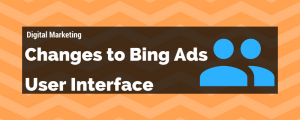Today, we’re sharing ways you can instantly improve your on-page SEO. The processes involved in optimising your content is not the same as off-page SEO. Off page is all about the different signals and external links, on page compliments off-page efforts and should not be ignored. Here are 3 on-page SEO you need to take care of for each page on your website.
It’s All About the Content
Adding content is the first step. You must optimise content whether you’re adding new product pages, blogs, articles, or any other type of web content. The content should be unique to your website (no duplicate content please) and written with the digital content style tips from Google in mind. Don’t write solely for the search engines. Remember who is reading and provide them with the information they clicked through for.
Meta Tags and Meta Descriptions
Meta tags aren’t all as valuable as they once were but they should still be used. These tags provide information for the search engines. These snippets of code are not seen on the page itself but they need to information about what content is being shared on the web page. This will help your website to show up within the relevant search engine results pages.
The meta description is a summary of what is included on the page. These descriptions are shown on the search engine results pages and can show up with the page is shared on social media. The search engines also use the content in the meta description to evaluate the topic being discussed and the value it will serve to their users. Each page on your website will benefit from the addition of a unique and carefully thought through meta description.
Title Tags and Heading Tags
Title tags are very important as this is what will be shown in the search engine results pages. It’s the first thing the users will read and will determine if they click through or not. Make sure the title tag includes information about what the page is about. Make the headline accurate and hard to resist.
Heading tags are the tags that are used for the headings on your web pages. The <h1> tag is the most important tag and this is usually used on the main heading for the post. The tags go all the way down to <h6> and they are used to establish the hierarchy on the page. Give all subheadings a tag, based on the importance of the topic or keywords used within that heading.
These are three basic on-site SEO tips that you can begin to implement on your own website. Check each page and work through the content, descriptions and various tags are up to scratch.
Need help to improve the SEO of your website? Get in touch and ask about our bespoke SEO services in Worcester.



